Environment
-
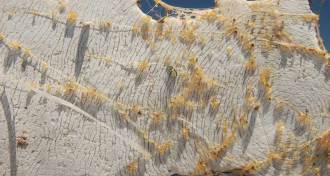 Environment
EnvironmentTrash researcher tallies ocean pollution
Marcus Eriksen has always had a thing for trash, and now he tallies ocean pollution.
By Julia Rosen -
 Environment
EnvironmentAir pollution linked to autism
Air pollution may double a pregnant woman's risk of having a child with autism, a new study suggests.
-
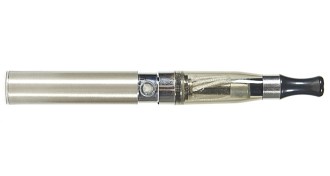 Health & Medicine
Health & MedicineYear in review: Risks of e-cigarettes emerge
Electronic cigarettes dispense water vapor laced with flavors and often a hefty dose of nicotine. These vapors may be far from benign, studies in 2014 suggested.
By Janet Raloff -
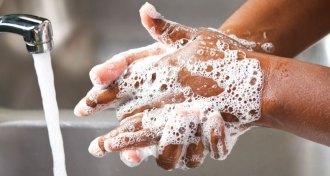 Environment
EnvironmentYear in review: Microbes exploit their killer
Triclosan, an unregulated antimicrobial chemical found in consumer products, may aid, rather than deter, microbes that invade people’s bodies.
By Beth Mole -
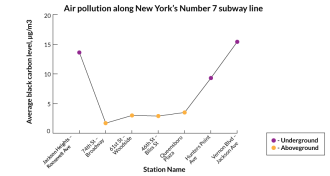 Environment
EnvironmentBlack carbon fouls New York subway stations
Black carbon, a respiratory irritant, fouls air in New York subway stations.
By Meghan Rosen -
 Environment
EnvironmentDDT lingers in Michigan town
Decades after a plant manufacturing DDT shut down in Michigan, the harmful insecticide is still found in neighboring birds and eggs.
By Beth Mole -
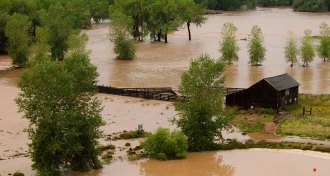 Environment
EnvironmentColorado deluge produced flood of drug-resistance genes
Flooding in Colorado’s South Platte River Basin washed antibiotics and drug-resistance genes into pristine waterways.
By Beth Mole -
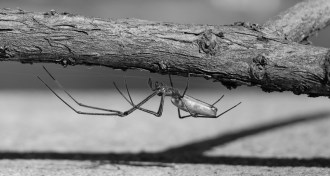 Environment
EnvironmentSpiders enlisted as pollution sensors for rivers
Hunting arachnids provide a better picture of chemical threats to food web.
By Beth Mole -
 Environment
EnvironmentThirdhand smoke poses lingering danger
Harmful cigarette chemicals that linger on surfaces, known as thirdhand smoke, can go on to pollute the air and may harm people’s health.
By Beth Mole -
 Environment
EnvironmentOil from BP spill may be sitting on seafloor
More than four years after the Deepwater Horizon disaster in the Gulf of Mexico, scientists find that oil is still lingering over a large area on the seafloor.
By Beth Mole -
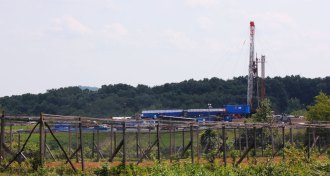 Environment
EnvironmentNo water contamination found in Ohio’s fracking epicenter
Methane in Ohio groundwater comes from biological sources, such as bacteria, not fossil fuel exploration.
-
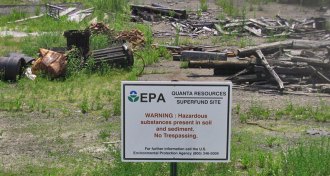 Environment
EnvironmentEngineered plants demolish toxic waste
With help from bacteria, plants could one day clean up polluted sites.
By Beth Mole